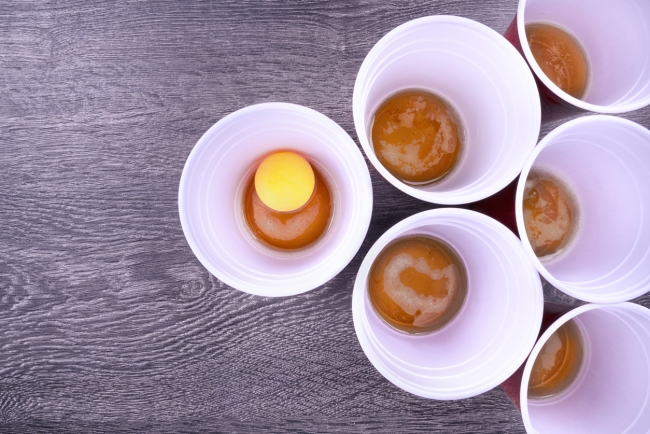You have /5 articles left.
Sign up for a free account or log in.

iStock
A new study out of Yale University confirms a notion college and university administrators have held for years -- that substance abuse is linked to a decline in student grades -- but this study also reveals a number of trends among college students that surprised its authors.
Researchers at Yale University and the Institute of Living in Hartford, Conn., found that students who drank a moderate to heavy amount of alcohol actually had similar grade point averages to those who consumed little or no alcohol. However, students who used moderate to heavy alcohol as well as marijuana saw their grades plummeting.
The study tracked more than 1,100 students at two unnamed colleges in Connecticut over the course of two years, beginning with their first semester of freshman year. The students involved in the study answered a series of questions about their patterns of substance use every month.
To the authors’ surprise, very few students reported using marijuana while abstaining from alcohol -- so few, in fact, that they could not draw conclusions about that subgroup of students.
The researchers found that although the 1,100 students achieved comparable SAT scores, their academic performance varied greatly in college. Students who drank minimal alcohol and used minimal marijuana had an average GPA of 3.10, while those who drank alcohol earned an average GPA of 3.03. The most dramatic change occurred in students who used both alcohol and marijuana -- their GPAs averaged 2.66.
Godfrey Pearlson, senior author of the study and professor of psychiatry and neuroscience at Yale, said the combination of those two drugs can have a number of different effects on student achievement.
“If you’re hanging out with friends and drinking and smoking marijuana, it’s time you can’t spend studying -- that’s one explanation,” Pearlson said. “Another explanation is harming yourself cognitively. Your working ability and your ability to concentrate are affected by the drug. Marijuana smoking by itself produces a certain degree of apathy, so you’re less motivated to study. If it’s less important to you, you’re less likely to engage in it.”
They also found that when students in the third category -- those with lower GPAs -- decided to limit their alcohol and marijuana intake, their grades improved.
“So it’s not that once you’ve done the drugs, there’s irreparable damage to your brain,” Pearlson said. “Their GPAs started coming back up.”
Finally, the researchers observed that about 60 to 70 percent of students who fell into one distinct category -- such as those who drink heavily or those who don’t drink at all -- did not move out of that category over the two years recorded.
This, the authors said, can be especially useful information for college administrators.
“If colleges want to discourage people from getting into one of the heavy-use groups, I guess the bottom line is they’re going to have to get that message across very early,” Pearlson said.
Because college students tend to get “locked in” to the lifestyle they choose early on, there should be greater awareness about what those decisions could mean later, said Shashwath Meda, first author of the study.
Students often enter college with an exaggerated idea of who is drinking and how much they’re drinking, Meda said. In reality, many students choose to abstain.
“Just informing them that is actually not the case can actually go a long way,” Meda said. “If people start talking about it and steer away folks from drug use in the first semester or so, I think you can put a lot of these students on the right path.”
Pearlson also suggested colleges intervene early and often with their students. "If people don’t perceive drinking a bit or smoking some weed harmful in any way, they’re more likely to indulge,” Pearlson said. “If the college got that message across early, that would make a difference.”
Colleges will ultimately have to invest more funding and resources in prevention and education programs in order to see significant results, said David Arnold, director of NASPA’s Bacchus Initiatives, which promote safe and healthy campus environments.
“Reports like this can be something we get really concerned about, but it can also be something we get really excited about,” Arnold said. “It can help students succeed. When we get reports like this, we are seeing resources we need to start directing … to [find] the best practice possible.”




